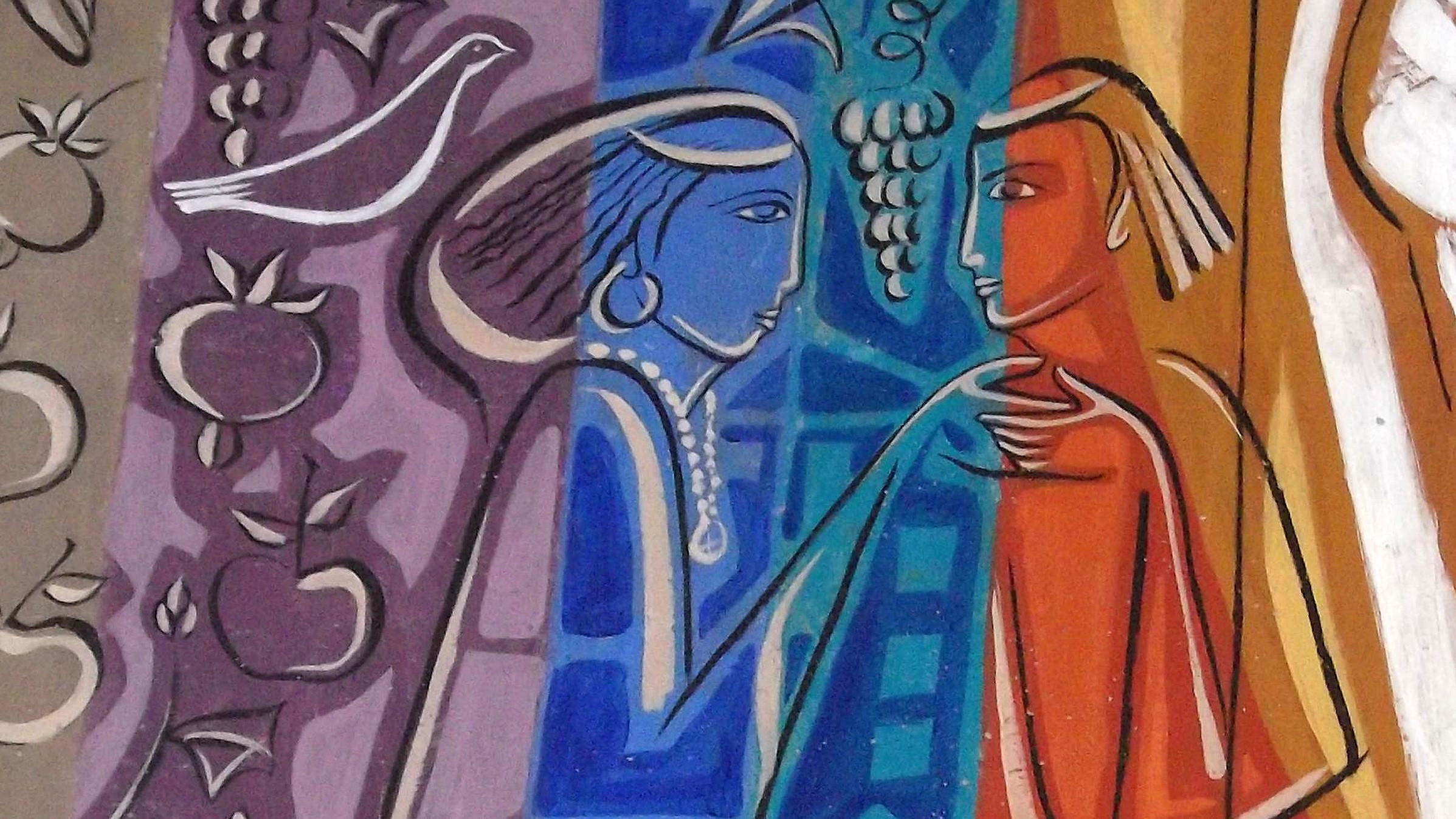
Song of Songs 2:8-13
Proper 17B
8 The voice of my beloved!A
Look,B he comes,C
leapingD upon the mountains,E
boundingF over the hills.
9 My beloved is like a gazelleG
or a youngH stag.I
Look,J there he stands
behind our wall,K
gazing inL at the windows,M
lookingN through the lattice.O
10 My beloved speaks and says to me:
“Arise,P my love,Q my fair one,R
and come away;
11 for nowS the winterT is past,
the rain is over and gone.
12 The flowersU appear on the earth;V
the time of singingW has come,
and the voice of the turtledoveX
is heard in our land.
13 The fig tree puts forthY its figs,Z
and the vinesAA are in blossom;BB
they give forth fragrance.CC
Arise,DD my love, my fair one,
and come away.
Image credit: “Song of Solomon – ‘Arise my love…and come away…'” by Claudio Pastro at the Virgin’s Monastery in Petropolis, Brazil.
